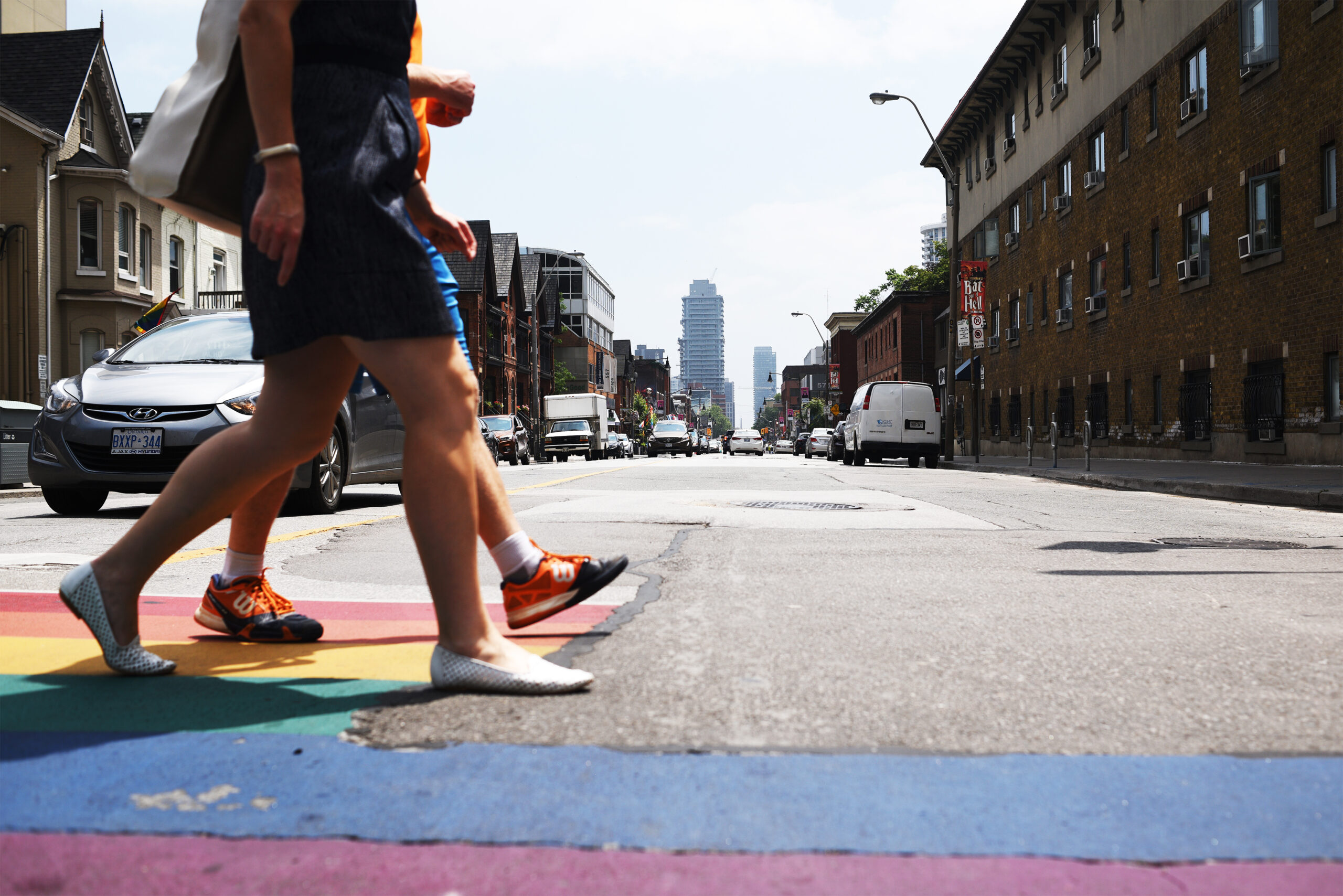Toronto’s rainbow crosswalks in the Church-Wellesley Village have been worn down, cut apart, paved over, and tarred over since almost immediately after they were installed in 2014, but no repair is planned until next year at the earliest and no one at the city is being held responsible.
The crosswalks, which are made of a plastic that is melted into the asphalt with blowtorches, were installed at the Church and Alexander and Church and Isabella intersections in June 2014 as a legacy project for that year’s WorldPride festivities. But within months, the first utility cuts were made into the Isabella crossings.
The damaged crosswalks have lingered for three years. The heart of the issue is that utilities companies in Toronto — be it water, hydro, gas, or telecoms — are not required to return roads and sidewalks to their original condition after they tear up roads to do work. A quick asphalt pour is all that’s required.
And the department of transportation services only checks that the utilities have met the city’s minimum standards; pre-existing improvements like the rainbow crosswalks are not necessarily replaced.

The rainbow crosswalk at Alexander and Church streets is also faded and cracked. Credit: Riley Sparks/Xtra
The crosswalks themselves were initially paid for with $50,000 of Section 37 community improvement funds paid by the developer of a new rental tower at 66 Isabella St. After the first utility cuts were made in 2014, the developer paid for repairs, says local councillor Kristyn Wong-Tam. But shortly after those repairs were completed, more unexpected utility cuts were made.
As of July 2017, more than half of the southside Isabella Street crosswalk has been torn out and replaced with bare asphalt, while the intersection’s other three crosswalks have faded or worn out, and have smaller cracks or utility cuts.
“The question has been who should be paying for the street since it was damaged less than a year after it was installed,” Wong-Tam asks. “Even though we do have the money, I just didn’t think it was quite fair that we pay for it again, and I wanted someone to take responsibility for it.”
But frustration over the situation has led Wong-Tam to somewhat relent.
“We’ve finally landed on an agreement to have them repainted. I have to pay for them all over again. That, I’m not happy about, but in the current state they do not look good,” she says.
She says she’s prepared a motion to allocate funds for the repair out of a fund for local area street improvements, which she hopes to present at the next Toronto city council meeting in October. That will make it possible to repaint the crosswalks in spring 2018.
But what will prevent utilities from tearing up the crosswalks right away again?
Essentially, nothing.
But Wong-Tam says that she’s reached an agreement with the city’s transportation services that Church Street will not be torn up again for another five years. Still, emergencies could lead to utility cuts, and the city has no control over federally-regulated telecoms such as Bell and Rogers, which can cut into roads as they deem necessary.
A long-standing plan to rebuild and improve Church Street is on hold pending the results of a study of transportation around Yonge Street due next fall, which is meant to examine options to improve the street’s public realm and pedestrian and cycling space.


 Why you can trust Xtra
Why you can trust Xtra


